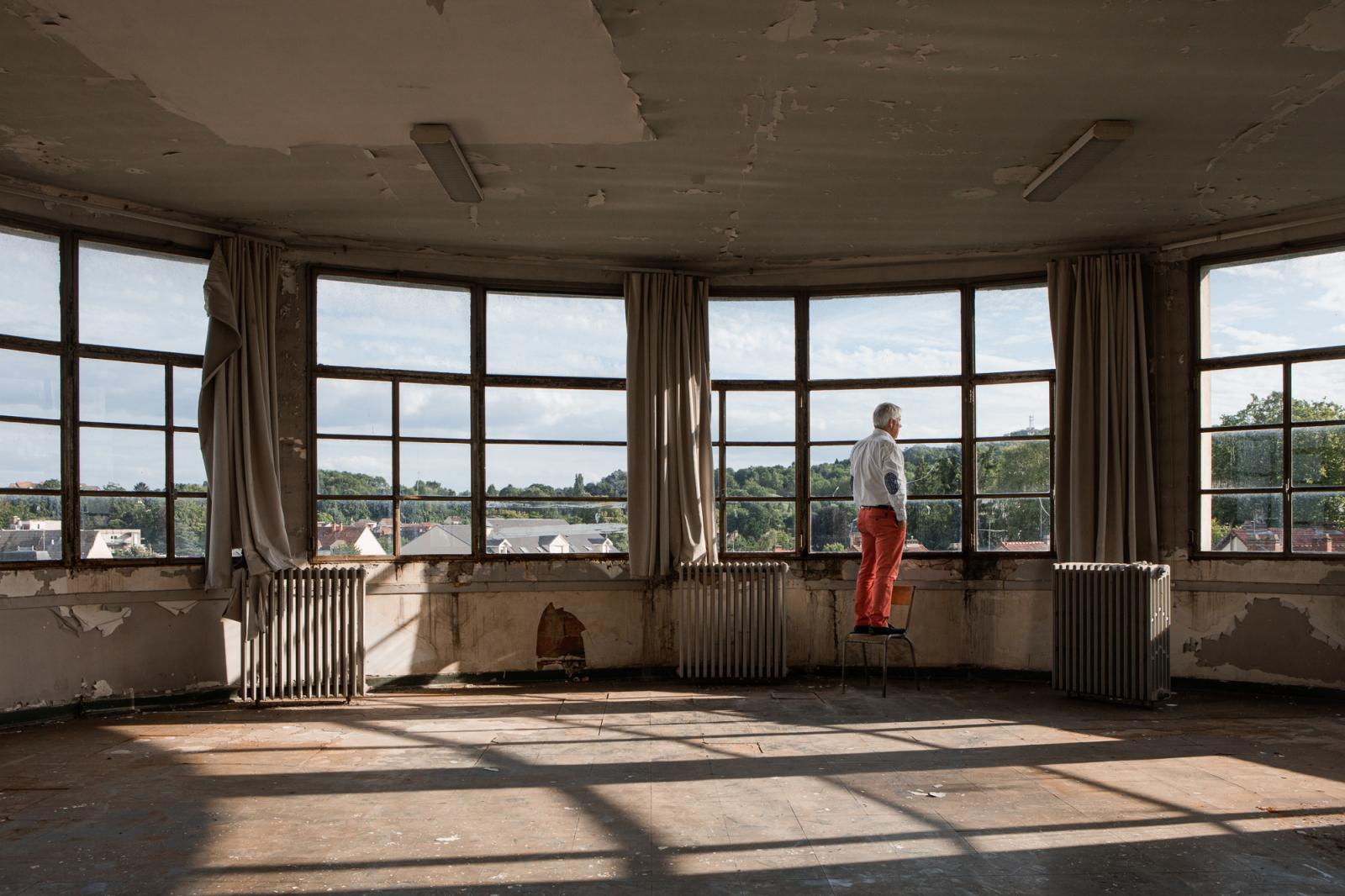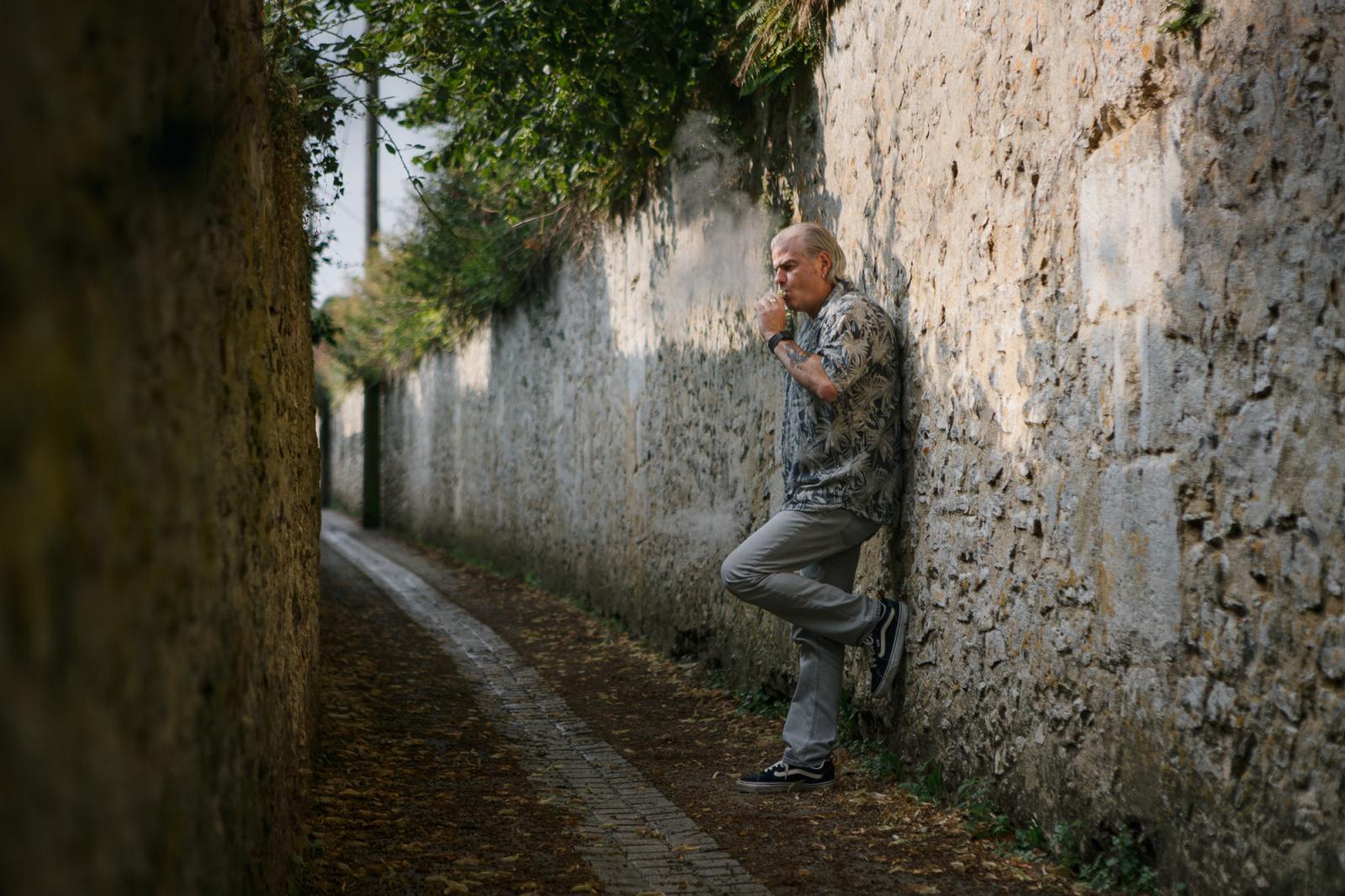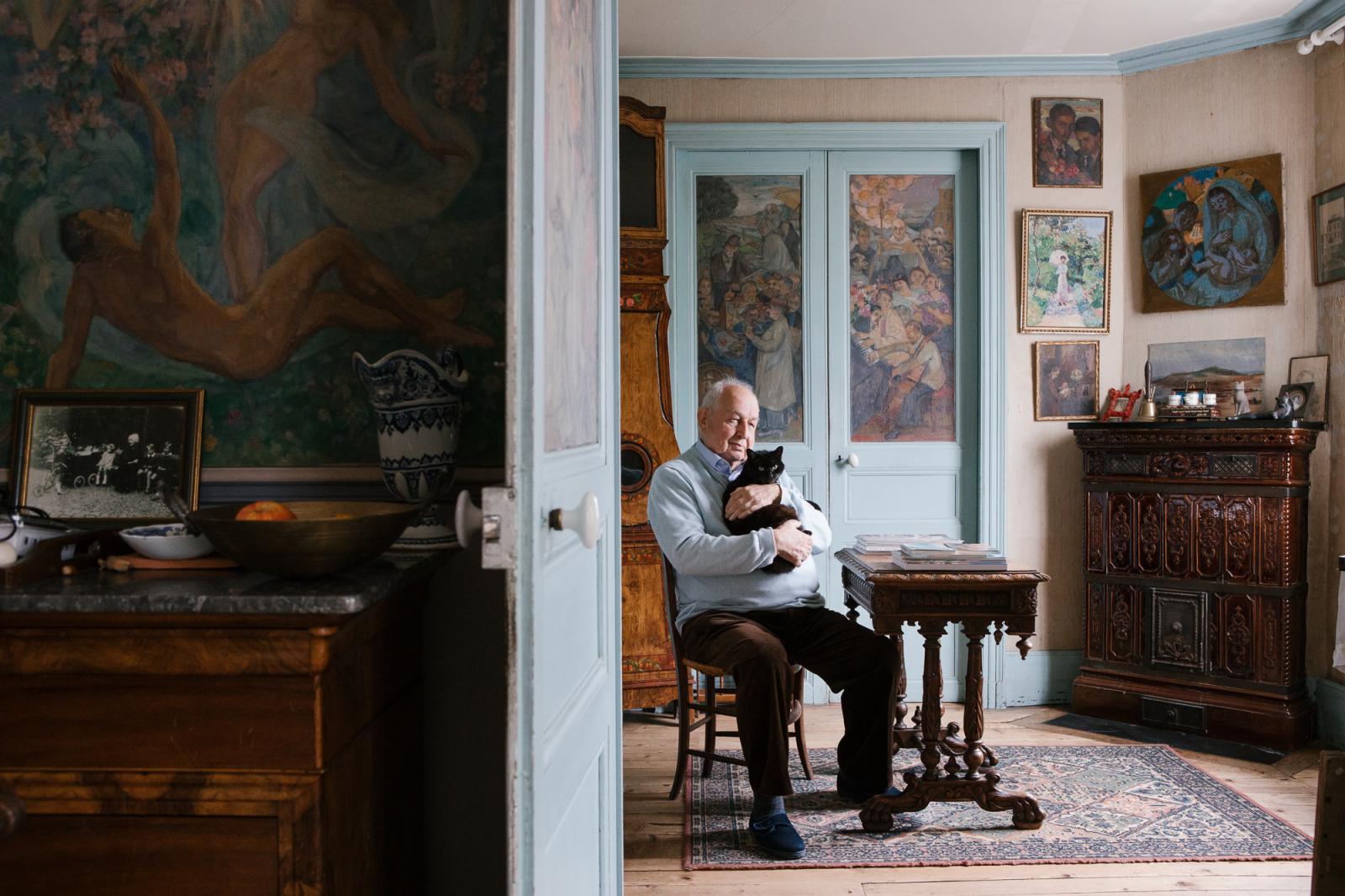Public Project
Parcours
Summary
Parcours was developed in the context of an artist residency in Clermont-de-l'Oise organized by Diaphane Photography Center. During my residency, I involved Clermont inhabitants to help me discover the city through their cherished places. It could be a special place linked to a memory or an emotion, whether public or private.
PARCOURS explores the relationship between people and places in the digital navigation era.
The project, developed In the frame of the Photaumnales festival, aims to create a collective map of the city of Clermont-de-l'Oise by relating the outward landscape to the more intimate landscape linked to the memories of its inhabitants. This series of portraits depicts each participant in a place of their choice, to which they felt connected. A wasteland, a forest, an old school, a dimly lit glimpse, assert their dignity as the protagonists of a human story. Places that are difficult to observe, especially if guiding our gaze is an itinerary calculated by an algorithm or prescribed by an application.
Unlike paper maps, which require constant eye contact with the environment, digital navigation systems are weakening, little by little, our ability to orient ourselves in unfamiliar environments: several studies show how by delegating the task of orientation to cognitive artifacts such as navigation apps, our brains stop doing the heavy lifting required to create and maintain mental maps. Instead, when we try to figure out where we are and memorize a street or a building, that place becomes ours.
Adopting this stance, people’s stories gave me access to a whole imaginary world foreign to me, which transformed completely anonymous or abandoned places into meaningful places to my eyes. Inhabitants were thus both subjects and creators of a collective emotional map based on their experiences. Through photography, I was able to encode these environments exploring the intimate relationship between the subject and the surroundings.
The project, developed In the frame of the Photaumnales festival, aims to create a collective map of the city of Clermont-de-l'Oise by relating the outward landscape to the more intimate landscape linked to the memories of its inhabitants. This series of portraits depicts each participant in a place of their choice, to which they felt connected. A wasteland, a forest, an old school, a dimly lit glimpse, assert their dignity as the protagonists of a human story. Places that are difficult to observe, especially if guiding our gaze is an itinerary calculated by an algorithm or prescribed by an application.
Unlike paper maps, which require constant eye contact with the environment, digital navigation systems are weakening, little by little, our ability to orient ourselves in unfamiliar environments: several studies show how by delegating the task of orientation to cognitive artifacts such as navigation apps, our brains stop doing the heavy lifting required to create and maintain mental maps. Instead, when we try to figure out where we are and memorize a street or a building, that place becomes ours.
Adopting this stance, people’s stories gave me access to a whole imaginary world foreign to me, which transformed completely anonymous or abandoned places into meaningful places to my eyes. Inhabitants were thus both subjects and creators of a collective emotional map based on their experiences. Through photography, I was able to encode these environments exploring the intimate relationship between the subject and the surroundings.
PARCOURS has been on display at Photaumnales 2022 festival organized by the Diaphane photographic center Clermont-de-l'Oise in collaboration with the Photolux Festival.
1,753















